Trinh Dinh Nghi wrote the epigraph for his work "Old Shadows of the Past" with two six-eight verses: "I have gone from young to old / But why do I still feel like I have not left the village?" This is the common feeling of those born in the village, who know how to think about their homeland...

1. I don't remember when I met Trinh Dinh Nghi. He and I had a "hat trick" of colleagues; first in our profession, then in many literary and press associations. However, when I remember Trinh Dinh Nghi, I remember most his humor and wit.
Trinh Dinh Nghi was born and raised in Ý Yên, Nam Định . He had a muddy childhood with the delta, struggling with the "eighth day of the third month". Every time Tet came, little Trinh Dinh Nghi waited for his mother to let him wear new clothes, go to the village to gamble, play marbles; play hopscotch... "In my generation, the traditional Tet was not luxurious enough, but in the memories of a poor childhood, Tet was always a sacred concept, located in the soul of each person, lasting throughout life and never fading away".
These are excerpts from the book "Old Shadows of the Past Season" consisting of 28 essays that Trinh Dinh Nghi has just introduced to readers. Essays are a literary genre rich in memories, imbued with narrative, but no less romantic and soaring. "Old Shadows of the Past Season" are truly "slices" of his desolate soul. He wrote about the village (Bamboo Shadows of the Village, Village Drum Sound, Village Pond, One Village Word); about the seasons associated with flowers and life (Peony Season, Xoan Flower Season).
Nostalgia, narrative and conveying messages from the past, about the traditional Tet of Vietnamese culture. He is worried about the cultural transformation, right on Tet holiday.
Trinh Dinh Nghi wrote the epigraph for his work "Old Shadows of the Past Season" with two six-eight verses: "I have gone from young to old / But I still feel like I have not left the village". This is the common feeling of those born in the village, who know how to think about their homeland. But how can they "leave". Poet Nguyen Ngoc Hanh once wrote: "In the past, I lived in the village / Now the village lives in me". The late poet Tran Quang Quy asserted: "No one can uproot me from the village".
Village is culture, is memory. I realized, behind the bamboo fence of the village there is the wisdom of the village. Why "go out"? Indeed, in literature, especially the poetry of poets born in the village, the village has a soul, becoming a part of the spiritual world . Western or Eastern, modern or ancient, when writing about the village, authors cherish and contemplate it like that.
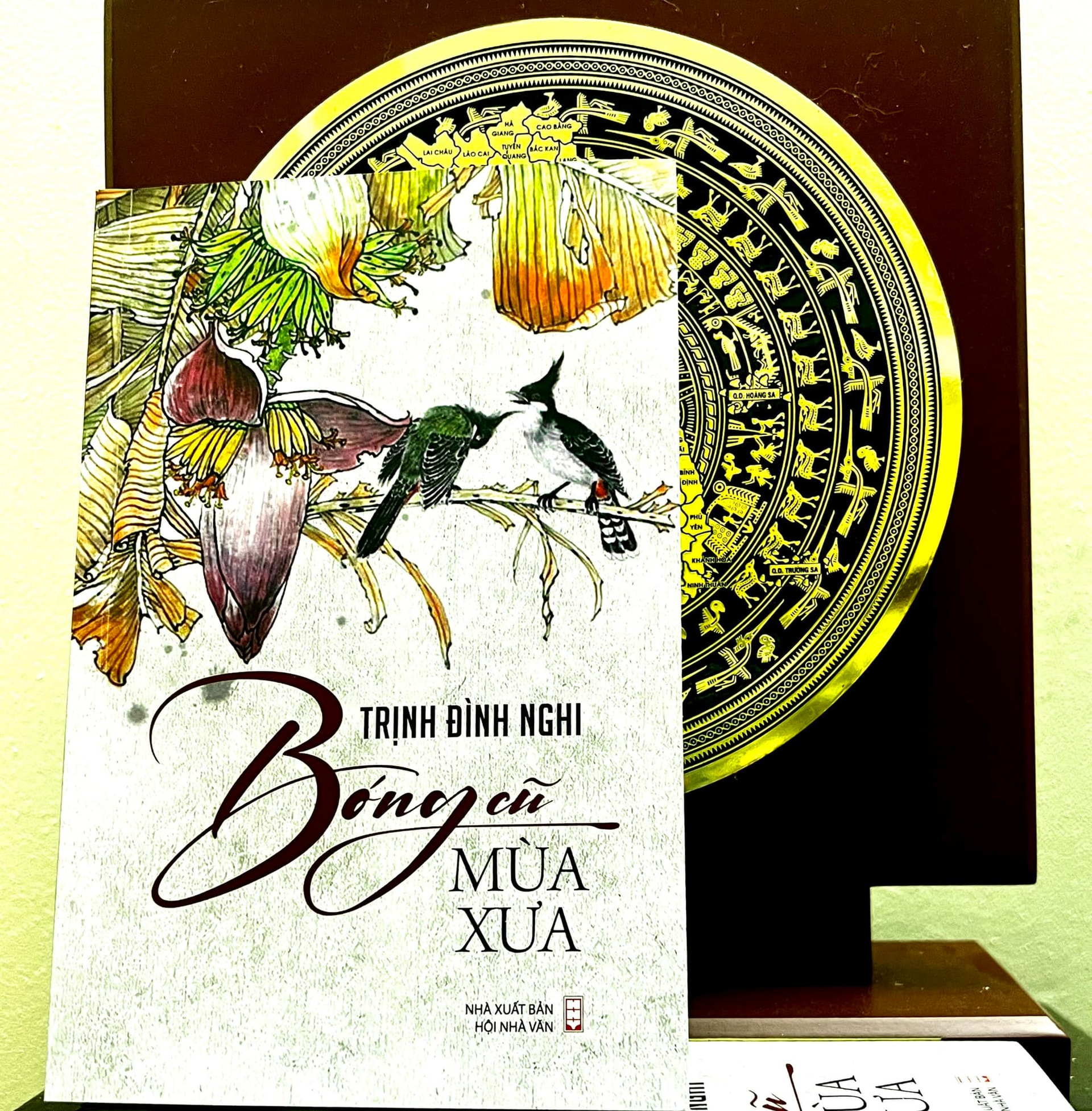
Russian poet Rasul Gamzatop once wrote: "Is the small village of Dagheestan more beautiful than Vonizo, Cairo...?" and affirmed "It is certainly more beautiful" and "You cannot exchange the village for anything".
Reading "Old Shadows of the Past", I stopped at the essay "Shadows of Village Bamboo". In my mind echoed the image of the bamboo tree in Nguyen Duy's poem: "Thin trunk, fragile leaves, / But how can they become walls and fortresses, oh bamboo? / Bamboo is always green everywhere, / Even though the soil is gravelly and lime-bleached", (Vietnamese Bamboo). Bamboo is a plant species close to farmers, associated with the countryside; since history it has been the embodiment of resilience and indomitability; becoming an element of Vietnamese identity and culture.
“I stopped in front of the bamboo bush, my heart felt restless and absent-minded...a sky of memories sleeping in my mind suddenly woke up and rushed back”, (Bamboo Shadow of the Village). Why didn’t writer Trinh Dinh Nghi name the work Bamboo Bush of the Village? It should be Bamboo Shadow of the Village, to be filled with green memories.
“In the old days, standing in the fields or walking far away from the village, you could only see bamboo hedges. The whole village was hidden in the green of the bamboo hedges. In that bamboo hedge was a whole community with a layer of culture, with many customs, habits, and rituals...”. Unfortunately, life has changed, bamboo is no longer a farming tool in the lives of farmers, the cool shade of bamboo on every country road no longer exists.
“When we are near bamboo, when we meet bamboo, we suddenly feel peaceful, serene, close to the fresh nature and the image of our homeland along with the happy and sad memories of our childhood”. Trinh Dinh Nghi reminisced, somewhat sadly.
Journalist Do Doan Hoang, when reading the work, commented that "Old Shadows of the Past" by Trinh Dinh Nghi "is like a gentle wind blowing through those memories, picking up each fragment of time, each distant sound to piece together a complete picture of the countryside filled with humanity". Memories and their beauty through Old Shadows of the Past, thus convey many messages.
2. Passionate about life, Trinh Dinh Nghi has up to ten “flower legs”, loves “nomadism”, here today, here tomorrow. Once, at least five years, Trinh Dinh Nghi established an “online playground” about literature, called Quan Chieu Van, with thousands of members, both domestic and foreign.
Many members from Quan “stepped out” to become members of the Vietnam Writers Association , such as Tong Phuoc Bao, Trac Diem, Dao An Duyen, Phan Duc Loc..., members of local Literature and Arts Associations. Many writers who were once “prolific” were members of Quan Chieu Van.
This shop is also strange, although it is online, the literary spirit is professional. Under the direction of Trinh Dinh Nghi, 24 large and small literary competitions have been organized, with the prize value for the competitions being more than 800 million VND. The most "famous" is probably the "Quan Chieu Van Short Story Competition 2022 - 2023".
“Just when I was bored, surrounded by only four walls and two small children, Trinh Dinh Nghi and Quan Chieu Van appeared. Trinh Dinh Nghi advised me to write,” writer Trang Thuy recalled, in a dialogue during the launch of the short story collection “There is still one last cold spell tonight will return”, in November 2024.
That is, Trinh Dinh Nghi knew how to create a "playground", through the literary playground, he introduced to the literary world many literary talents and personalities.
Trinh Dinh Nghi is good at gathering and multiplying strength, in journalistic terms called "socialization". During the 5 years of its existence (2018 - 2023), Quan Chieu Van has made many trips to meet and exchange throughout the North, Central and South, including the mountainous regions of the Northwest and Central Highlands. During those trips, Quan Chieu Van has carried out social work in many aspects such as charity houses, sharing with difficult circumstances, donating books of all kinds to many schools and communities...
Now Quan Chieu Van no longer exists, but the “spirit” of this restaurant remains intact. That is the spirit of sharing, aiming for humane beauty, for people, for the community.
Typhoon No. 3, internationally known as Yagi, hit the northern provinces in September 2024. While struggling with the storm on the Day River dike with his fellow countrymen, writer Trinh Dinh Nghi still announced on his personal page his participation in the relief work.
After more than a day of working together, the brothers and sisters who used to live in Quan Chieu Van exceeded the initial target. In addition to the money, there were books, school supplies, and medicine to support 2 schools in Yen Bai. He and his brothers rolled up their sleeves to restore Minh Chuan Primary and Secondary School and Tan Linh Primary and Secondary School, in Luc Yen district, Yen Bai province.
“People are few, people are many, a thousand is as important as a billion, a notebook is as precious as a school. Even the smallest rays of sunshine can somehow warm the spirit and faith of teachers and students through difficult days of storms and floods”, Trinh Dinh Nghi’s humanistic view.
3. Trinh Dinh Nghi is a member of the Vietnam Writers Association and the Vietnam Journalists Association. Up to now, writer Trinh Dinh Nghi has published 7 works. From 2013 to now, only in 2017 and 2019 did he not publish. That said, his "writing ability" is not "average".
Being a humorous person in life, Trinh Dinh Nghi's literature confirms that he is a satirical writer. "The country boy goes on a trip" (2013), "The big official goes on a trip" (2014), "The woman goes on a trip" (2015), "Depravity in the village" (2018)... are the names of short story collections bearing Trinh Dinh Nghi's "identity".
Trinh Dinh Nghi spent his whole life going back and forth, here today and gone tomorrow, but he still "fell" with the village, worried about the village from the bamboo trees, the pond banks, the wells... There was nothing Trinh Dinh Nghi did not stop and think about. It could be a flower of reed grass, a grasshopper, a locust, a moth.... That was when he brought up a bowl of crab soup, enjoyed the green rice grains... "distilled" from the hardships and fragrant herbs of the delta.
"Old Shadows of the Past" confirms that Trinh Dinh Nghi is a sensitive person, nothing does not awaken, the periphery of the soul. Thinking that the languages he has known, the lands he has been to, the people he has known... are all memories, enriching the "luggage" of a person. This sentence is true for Trinh Dinh Nghi.
Source: https://daidoanket.vn/trinh-dinh-nghi-ky-uc-lang-va-hanh-trang-cuoc-doi-10298624.html








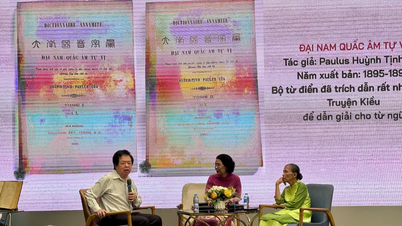

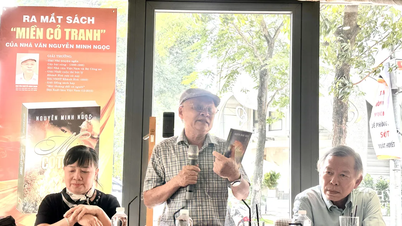















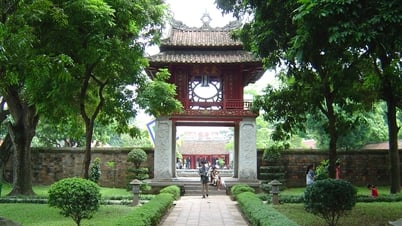









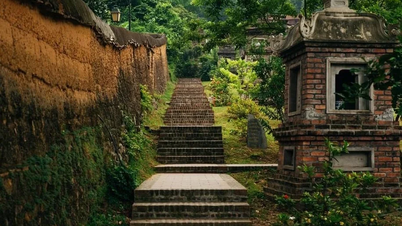











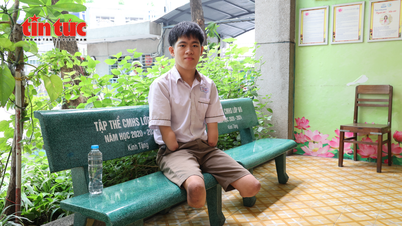

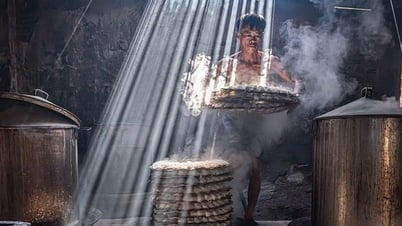





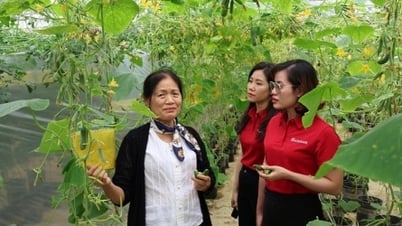


















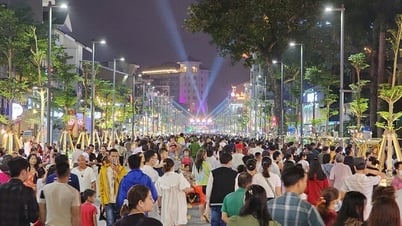












![[OCOP REVIEW] Bay Quyen sticky rice cake: A hometown specialty that has reached new heights thanks to its brand reputation](https://vphoto.vietnam.vn/thumb/402x226/vietnam/resource/IMAGE/2025/7/3/1a7e35c028bf46199ee1ec6b3ba0069e)











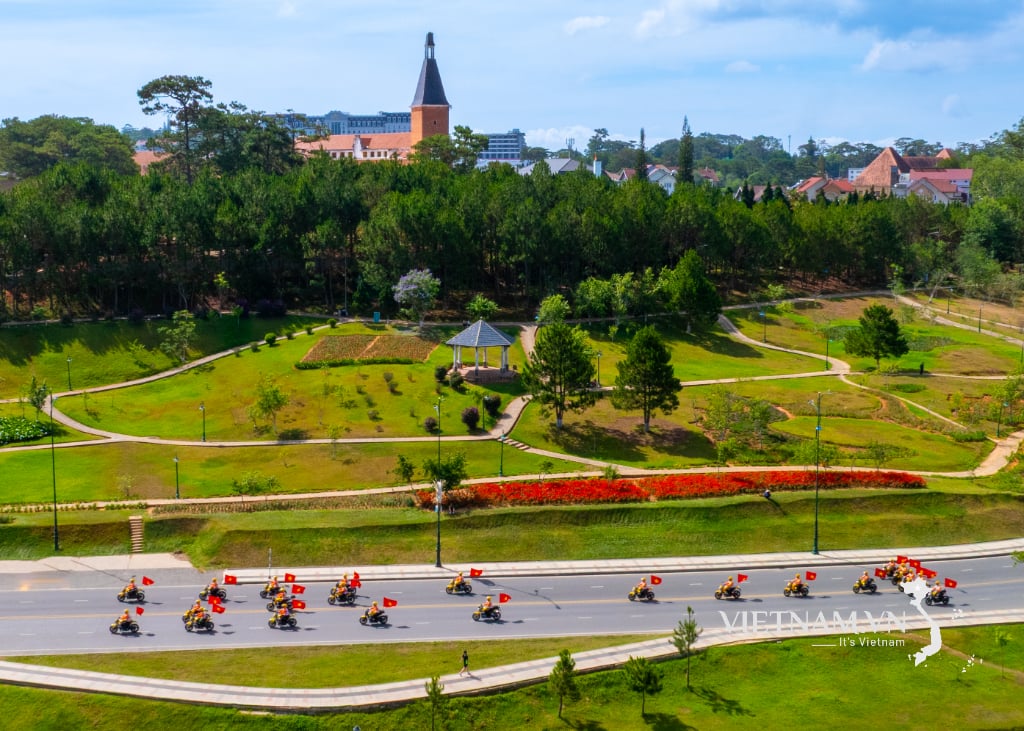

Comment (0)